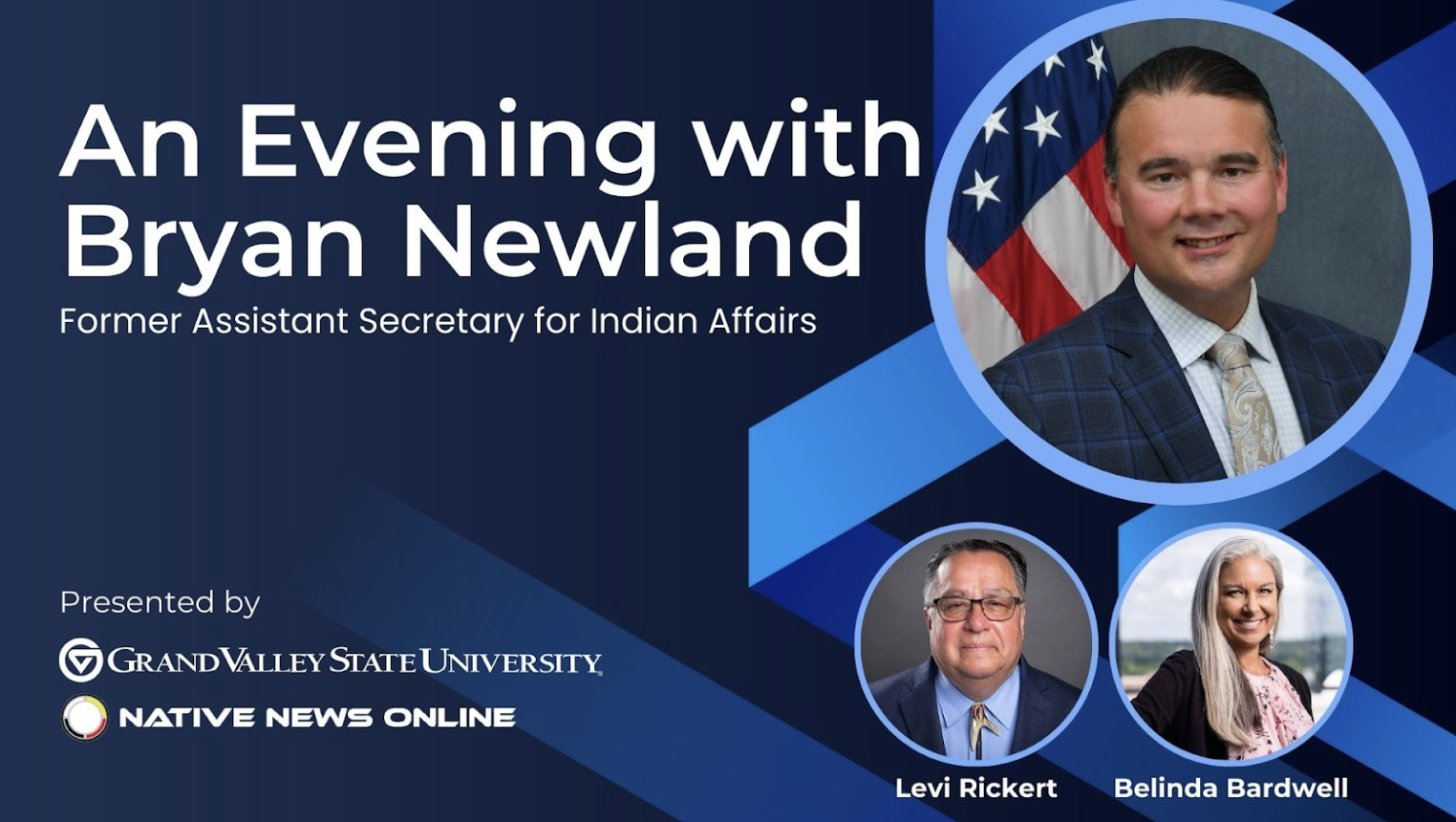
- Details
- By Kristen Lilya
Former Assistant Secretary for Indian Affairs Bryan Newland (Bay Mills Indian Community was interviewed last Tuesday evening at Grand Valley State University by Native News Online publisher/editor Levi Rickert and Belinda "Lin" Bardwell (Little Traverse Bay Bands of Odawa), senior advisor on Native American Affairs and assistant director of the Office of Multicultural Affairs for a fireside chat.
During the conversation, Newland reflected on the historic strides made under his and Secretary Deb Haaland’s leadership. He spoke candidly about the challenges, victories, and ongoing efforts to advance Indigenous sovereignty, land restoration, and policy reform.
Newland agreed with Rickert and Bardwell, the time they worked together was a special moment for Native Americans because he and Haaland working together as Native Americans did not have to spend a lot of time explaining why things were important to Native people.
The central themes of the discussion were the importance of tribal self-determination, the significance of land back initiatives and addressing Native youth and the next generation of leaders.
Why This Matters:
The fireside chat, presented by Grand Valley State University and Native News Online, provided a rare opportunity for in-depth discussion on the lasting impact of Newland and Haaland’s work. From boarding school investigations to historic investments in tribal infrastructure, their tenure marked a turning point for federal-tribal relations.
For those who missed the live event, the full discussion is now available on Native News Online’s YouTube channel: Watch Here.
Support Our Work:
If you value in-depth Native journalism and coverage of events like this, consider supporting Native News Online. Your donation helps us continue sharing these important conversations with Indian Country and beyond.
🌟 Support Native Stories: https://nativenewsonline.net/donate
📬 Stay Updated: https://nativenewsonline.net/subscribe-to-native-news-today
More Stories Like This
Native News Weekly (August 25, 2024): D.C. BriefsNavajo Nation Mourns the Passing of Former Vice President Rex Lee Jim
Deb Haaland Earns Endorsement From Communications Workers of America Local 7076
University Soccer Standout Leads by Example
Two Native Americans Named to Democratic Congressional Campaign Committee's“Red to Blue” Program
Help us defend tribal sovereignty.
At Native News Online, our mission is rooted in telling the stories that strengthen sovereignty and uplift Indigenous voices — not just at year’s end, but every single day.
Because of your generosity last year, we were able to keep our reporters on the ground in tribal communities, at national gatherings and in the halls of Congress — covering the issues that matter most to Indian Country: sovereignty, culture, education, health and economic opportunity.
That support sustained us through a tough year in 2025. Now, as we look to the year ahead, we need your help right now to ensure warrior journalism remains strong — reporting that defends tribal sovereignty, amplifies Native truth, and holds power accountable.
 The stakes couldn't be higher. Your support keeps Native voices heard, Native stories told and Native sovereignty defended.
The stakes couldn't be higher. Your support keeps Native voices heard, Native stories told and Native sovereignty defended.
Stand with Warrior Journalism today.
Levi Rickert (Potawatomi), Editor & Publisher
